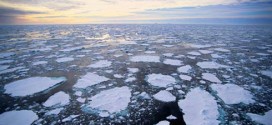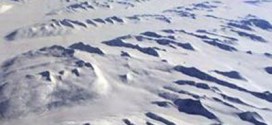The victim of extensive fishing, a 10-foot Amazonian fish appears to be headed straight for extinction in several areas. According to BBC News, the Arapaima, a formerly dominant fish in the Amazon River, is now extinct in eight of 41 communities observed in a study published in the journal Aquatic Conservation: Marine and Freshwater Ecosystems. The Arapaima is known to …
Read More »Science
Greece : Tomb unearthed from era of Alexander (Photo)
Greece – Archaeologists excavating an ancient mound in northern Greece have uncovered what appears to be the entrance to an important tomb from about the end of the reign of warrior-king Alexander the Great, officials said Tuesday.
Read More »Researchers learn secret of how geckos cling to vertical walls
New research shows just how stick geckos’ feet are. Scientists say each of the hairs on each of their toes is sticky, allowing them to stick to surfaces and climb walls with ease. In fact, they’re able to so easily stick and unstick their feet that they can run across any surface at a rate of 20 body lengths per …
Read More »Destruction of Three stars by black holes detected
Researchers have found out that black holes may be more ravenous than expected. They’ve registered three possible occasions of the total destruction of stars by supermassive black holes at the centers of galaxies.
Read More »Scientists sees survival story in fly’s small genome
Researchers have sequenced the genome of Belgica antarctica, the Antarctic midge – the smallest in insects described to-date – and believe it can explained by the midge’s adaptation to its deep-freeze extreme living environment.
Read More »Manitoba : Zebra mussels still in Lake Winnipeg
There is more evidence that zebra mussels are infesting Lake Winnipeg. After successfully eradicating the pests from four harbours earlier this year, the province has found nine larval zebra mussels in the southeast part of the lake, including near Grand Marais.
Read More »Oklahoma Aquarium to Host Shark Week Activities for All Ages
The Oklahoma Aquarium in Jenks is offering special activities August 10-17 to celebrate their own Shark Week.
Read More »Research Queries Temperature Proxies And Models, Report
When the Intergovernmental Panel on Climate Change recently requested a figure for its annual report, to show global temperature trends over the last 10,000 years, the University of Wisconsin-Madison’s Zhengyu Liu knew that was going to be a problem. “We have been building models and there are now robust contradictions,” says Liu, a professor in the UW-Madison Center for Climatic …
Read More »2010 Chile earthquake triggered icequakes in Antarctica, Study
A massive earthquake that struck Chile in 2010 caused glaciers thousands of miles away in Antarctica to calve, a study published Sunday in the journal Nature Geoscience found. Seismic surface waves radiating away from the earthquake’s epicenter traveled some 2,900 miles (4,700 kilometers) before passing through Antarctica’s ice sheets and causing small tremors, or “icequakes.”
Read More »Turkish researchers to study 2-headed dolphin calf
The body of a two-headed dolphin has washed up on a beach in Turkey this week. The dolphin had two heads, but merged to share one tail.
Read More »Supermoon and Perseid Meteor Shower (Video)
One of the brightest and most visible meteor showers of the year will peak from Monday to Wednesday night.
Read More » Canada Journal – News of the World Articles and videos to bring you the biggest Canadian news stories from across the country every day
Canada Journal – News of the World Articles and videos to bring you the biggest Canadian news stories from across the country every day










